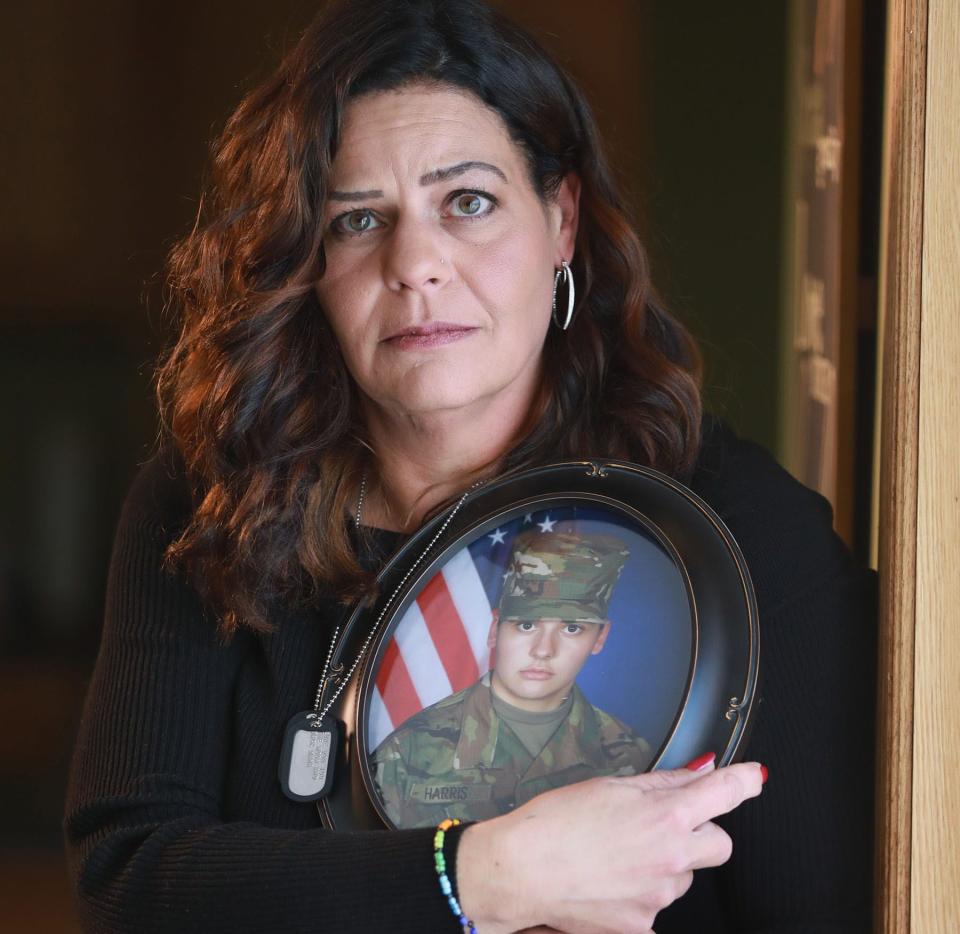Four soldiers in Alaska died by suicide in one month despite surge in mental health help
WASHINGTON – Four soldiers in Alaska died by suicide in the past month, an alarming spike that came despite a surge in mental health resources to the Army posts there.
In May, the Army sent more than 40 counselors and chaplains to Alaska after USA TODAY reported a month earlier that soldiers with suicidal issues had waited weeks for appointments with mental health providers. In 2021, 17 soldiers died by suicide, including eight over four months late in the year as winter descended on the state, daylight shortened and despair deepened.
The Army's efforts this year, which include mandatory annual counseling sessions for each of its 11,500 soldiers in Alaska, appeared to be paying off. Wait times to see counselors had been reduced. Through September, Army officials in Alaska reported that there had been one confirmed suicide.
But something happened in October, and Maj. Gen. Brian Eifler, commander of the 11th Airborne Division and U.S. Army Alaska, sent a letter Nov. 4 to soldiers and their families about the surge in suicides.
"Many of you already know that we lost four Arctic Angels in the past 30 days to the enemy of despair," Eifler wrote. "After a significant reduction from last year, these recent losses are a heart-breaking reminder that this battle is not over."
The suicide rate among all active duty troops – soldiers, sailors, airmen and Marines – increased gradually from 2011 to 2021, according to the Pentagon's latest report in October. In 2021, 519 troops died by suicide, with young, enlisted service members at greatest risk. The rate in 2021 was 24.3 per 100,000 troops, lower than in 2020 and comparable with the civilian population.
In March, Defense Secretary Lloyd Austin ordered the creation of an independent panel to review suicides in the military focusing on nine bases. The panel's findings and recommendations are due to Congress by Feb. 18. Three of the bases included in the review are in Alaska.
Life for soldiers in Alaska presents unique challenges.
Temperatures that plunge to minus 40 degrees, frequent training and deployment, and geographic and social isolation have been cited as key stresses for soldiers there. The relatively high cost of living, alcohol abuse, sleep disorders in the Land of Midnight Sun and its long, dark winters can contribute to mental health struggles as well. Among the general population, Alaska had the second-highest suicide rate in the nation in 2019, according to the Centers for Disease Control and Prevention.
A relatively small spike in suicides at Fort Wainwright – 11 deaths between January 2014 and March 2019 – prompted the Army to commission a study. Its recommendations resulted in more than $200 million spent to improve barracks and build sprawling garages to shelter soldiers maintaining vehicles. Yet suicide continued to vex Army officials – eight deaths in 2019, seven in 2020.
The peak of 17 suicides last year drew more attention. Soldiers told USA TODAY at Fort Wainwright in February of waiting weeks to see a counselor for mental health concerns. They also spoke of living in Arctic conditions of extreme cold and lack of daylight, physical isolation and problems with finances and relationships.
Congress and the Army intervened and sent a contingent of 40 chaplains and counselors to Alaska, and members of Congress voted to include in the annual Pentagon spending bill financial aid and other resources for troops based in the state. Soldiers now can choose to serve in Alaska, an option that has resulted in 1,000 volunteers.

Eifler, in his letter, wrote that suicide prevention remains his "#1 priority." Access to chaplains will be increased, he wrote.
"In many cases, the indicators are not easily seen," he wrote. "We must all remain vigilant and ready to personally engage, before the point of no return, before the loss of hope."
If you or someone you know is thinking about suicide, help is available. Call or text 988 or chat at 988lifeline.org Service members and veterans who are in crisis or having thoughts of suicide and those who know a service member or veteran in crisis can call the Military Crisis Line/Veterans Crisis Line for confidential support 24 hours a day, seven days a week, 365 days a year. Call 1-800-273-8255 and press 1; text 838255; or chat online at VeteransCrisisLine.net/Chat.
This article originally appeared on USA TODAY: Suicide took lives of four Alaska soldiers one month, reversing trend

